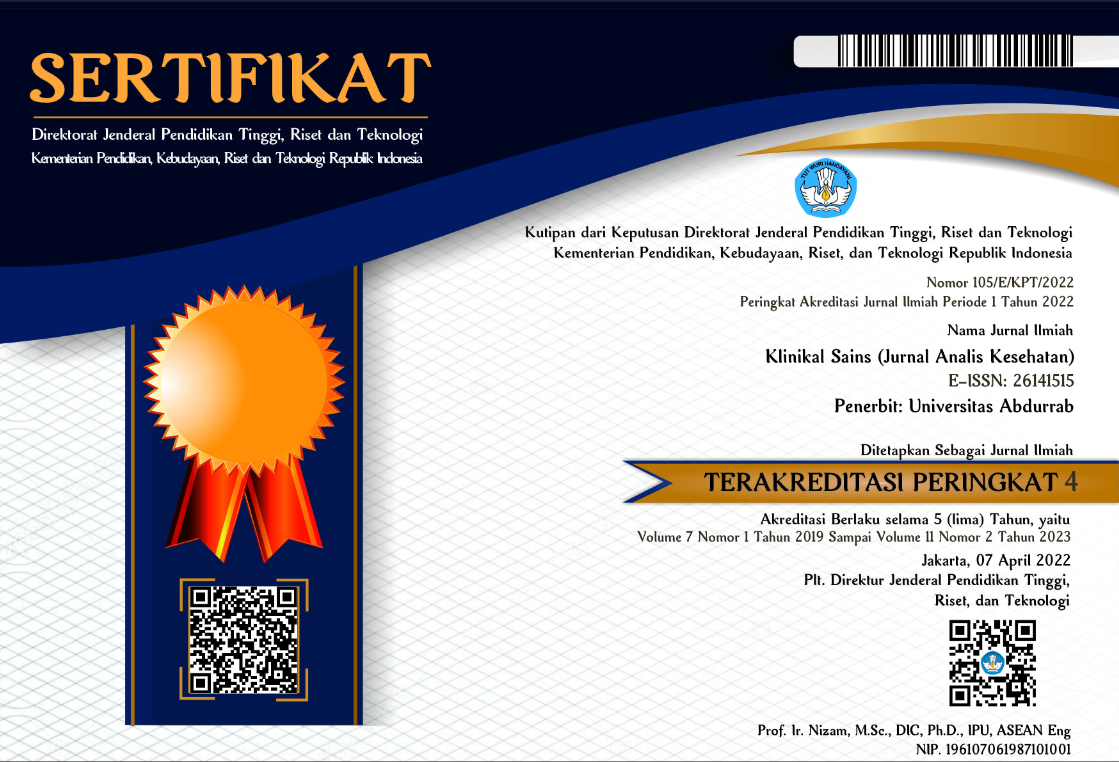Relationship of Personal Hygiene and Foods with the Existence of Parasite Student’s Intestine of Madrasah Ibtidaiyah in a Islamic Boarding School Surabaya
Abstract
Abstract: Intestinal parasitic infections are a public health problem for developing countries located in tropical and subtropical regions due to uncontrolled population growth, weather variations, low levels of knowledge, and poor nutrition. Giardia lamblia is a protozoa that has flagellate, which is in the upper segment of the small intestine and humans are infected by consuming food or drinks contaminated with parasitic cysts. Blastocystis hominis is the most common parasite that infects the digestive system of humans and some animals, such as mammals, birds, reptiles and anthropods. The purpose of this study was to analyze the relationship of individual hygiene and food hygiene to cases of intestinal parasites in students' feces at a boarding school in Surabaya. The research was an observational study with a cross sectional research design. The population of the study was 10 Islamic boarding school students, aged 7-13 years. The sampling technique in this study was nonprobabilty sampling. Data was collected by interviewing, filling out questionnaires, taking samples of santri stools and taking santri food samples. 50% poor personal hygiene and 100% negative Escherichia coli on food. Spearman test results where p = 0, 040 So that there is a relationship between individual hygiene and intestinal parasites in feces in Islamic boarding schools in Islamic boarding schools, with a correlation coefficient of -0.655 so that it has a strong relationship with the opposite direction.
Keywords: Personal hygiene, Eschericia coli, parasite intestinal
1. Copyright of all journal manuscripts is held by the Klinikal Sains : Jurnal Analis Kesehatan
2. Formal legal provisions to access digital articles of electronic journal are subject to the provision of the Creative Commons Attribution-ShareAlike license (CC BY-NC-SA), which means that Klinikal Sains : Jurnal Analis Kesehatan is rightful to keep, transfer media/format, manage in the form of databases, maintain, and publish articles.
3. Published manuscripts both printed and electronic are open access for educational, research, and library purposes. Additionally, the editorial board is not responsible for any violations of copyright law.
licensed under a Creative Commons Attribution-ShareAlike 4.0 International License.
 pdf
pdf
 Abstract views: 197
Abstract views: 197
 downloads: 2898
downloads: 2898

 :
:







